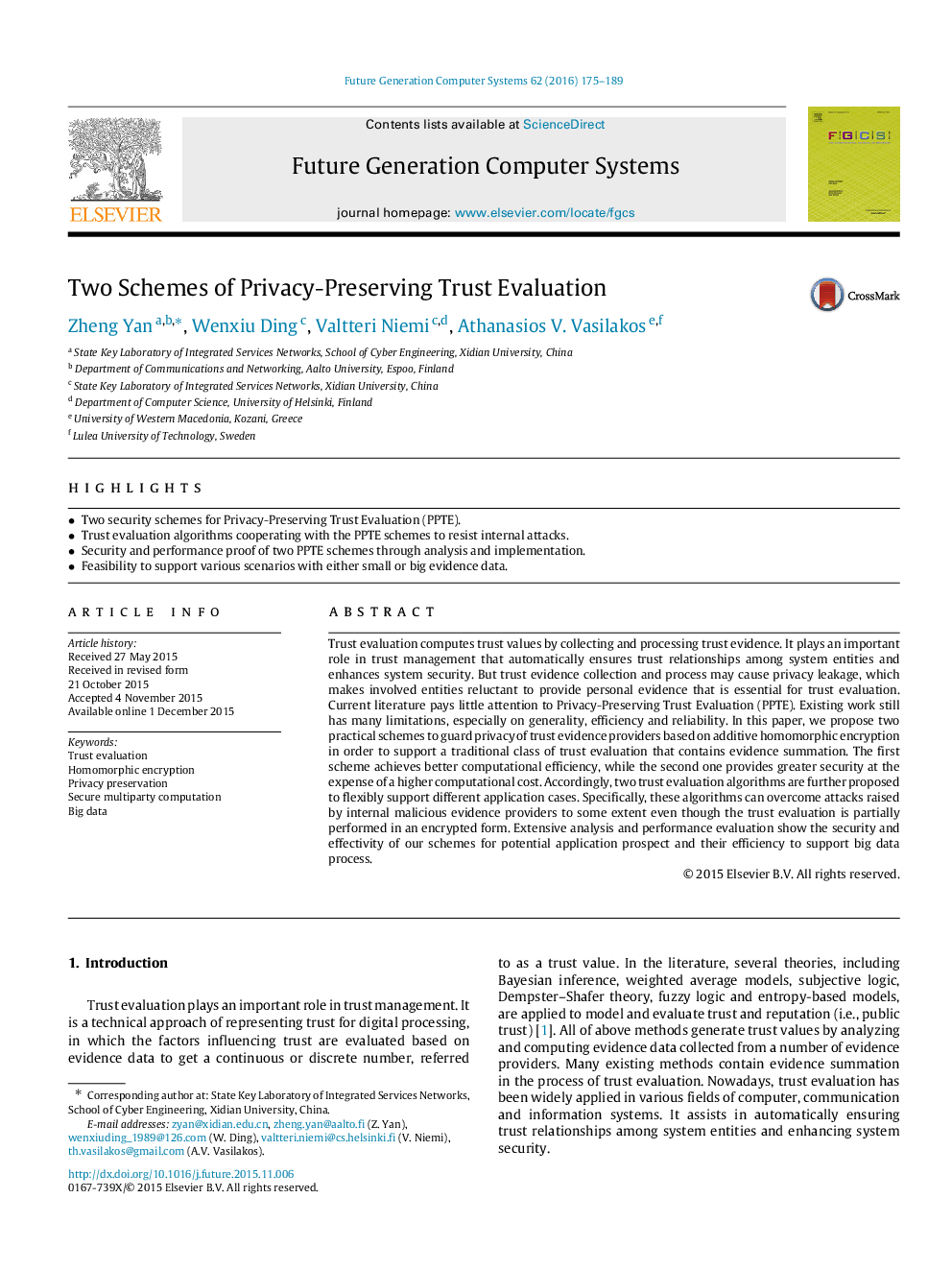| Article ID | Journal | Published Year | Pages | File Type |
|---|---|---|---|---|
| 425549 | Future Generation Computer Systems | 2016 | 15 Pages |
•Two security schemes for Privacy-Preserving Trust Evaluation (PPTE).•Trust evaluation algorithms cooperating with the PPTE schemes to resist internal attacks.•Security and performance proof of two PPTE schemes through analysis and implementation.•Feasibility to support various scenarios with either small or big evidence data.
Trust evaluation computes trust values by collecting and processing trust evidence. It plays an important role in trust management that automatically ensures trust relationships among system entities and enhances system security. But trust evidence collection and process may cause privacy leakage, which makes involved entities reluctant to provide personal evidence that is essential for trust evaluation. Current literature pays little attention to Privacy-Preserving Trust Evaluation (PPTE). Existing work still has many limitations, especially on generality, efficiency and reliability. In this paper, we propose two practical schemes to guard privacy of trust evidence providers based on additive homomorphic encryption in order to support a traditional class of trust evaluation that contains evidence summation. The first scheme achieves better computational efficiency, while the second one provides greater security at the expense of a higher computational cost. Accordingly, two trust evaluation algorithms are further proposed to flexibly support different application cases. Specifically, these algorithms can overcome attacks raised by internal malicious evidence providers to some extent even though the trust evaluation is partially performed in an encrypted form. Extensive analysis and performance evaluation show the security and effectivity of our schemes for potential application prospect and their efficiency to support big data process.
